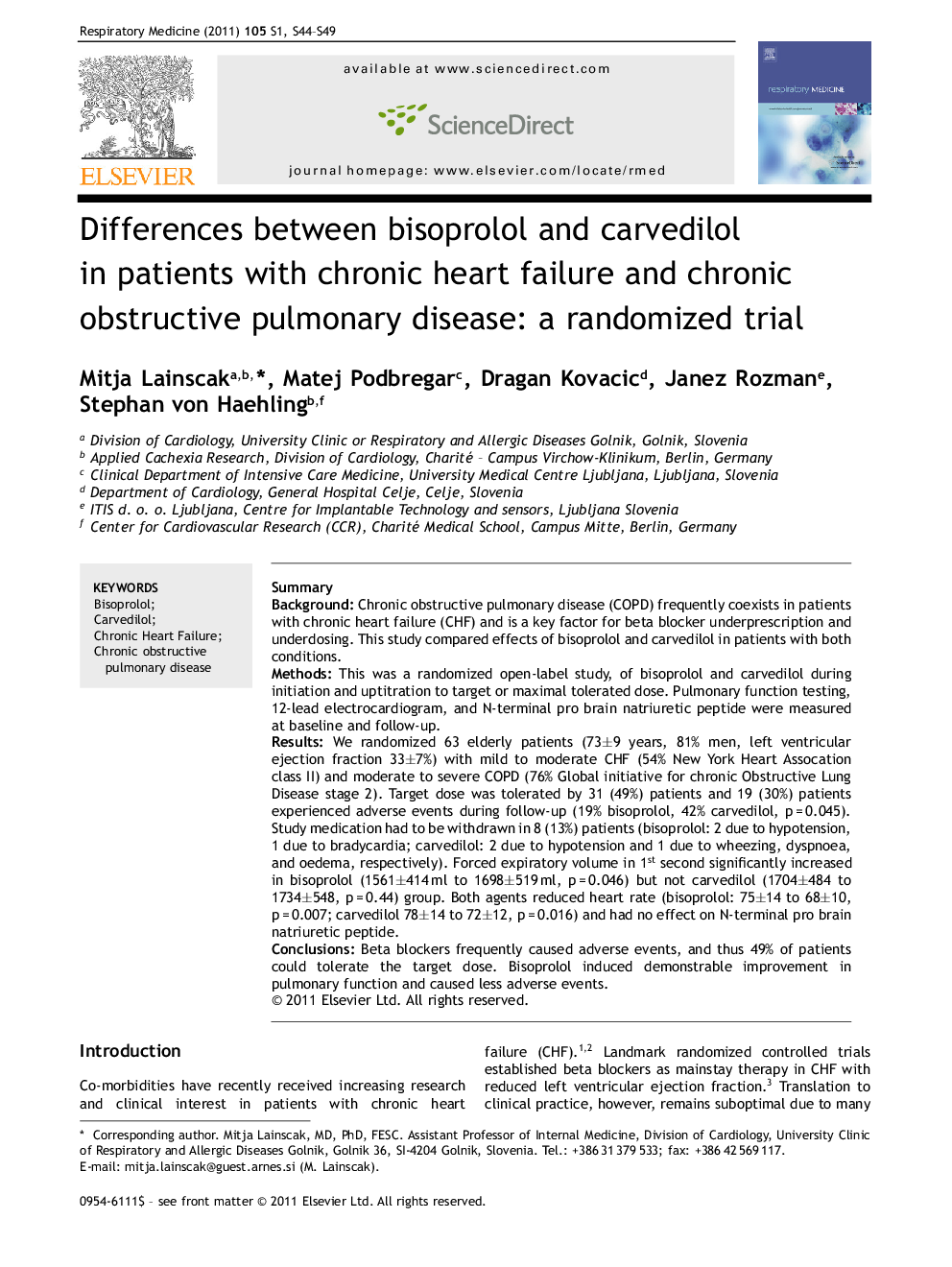| کد مقاله | کد نشریه | سال انتشار | مقاله انگلیسی | نسخه تمام متن |
|---|---|---|---|---|
| 4210895 | 1280615 | 2011 | 6 صفحه PDF | دانلود رایگان |

SummaryBackgroundChronic obstructive pulmonary disease (COPD) frequently coexists in patients with chronic heart failure (CHF) and is a key factor for beta blocker underprescription and underdosing. This study compared effects of bisoprolol and carvedilol in patients with both conditions.MethodsThis was a randomized open-label study, of bisoprolol and carvedilol during initiation and uptitration to target or maximal tolerated dose. Pulmonary function testing, 12-lead electrocardiogram, and N-terminal pro brain natriuretic peptide were measured at baseline and follow-up.ResultsWe randomized 63 elderly patients (73±9 years, 81% men, left ventricular ejection fraction 33±7%) with mild to moderate CHF (54% New York Heart Assocation class II) and moderate to severe COPD (76% Global initiative for chronic Obstructive Lung Disease stage 2). Target dose was tolerated by 31 (49%) patients and 19 (30%) patients experienced adverse events during follow-up (19% bisoprolol, 42% carvedilol, p = 0.045). Study medication had to be withdrawn in 8 (13%) patients (bisoprolol: 2 due to hypotension, 1 due to bradycardia; carvedilol: 2 due to hypotension and 1 due to wheezing, dyspnoea, and oedema, respectively). Forced expiratory volume in 1st second significantly increased in bisoprolol (1561±414ml to 1698±519ml, p = 0.046) but not carvedilol (1704±484 to 1734±548, p = 0.44) group. Both agents reduced heart rate (bisoprolol: 75±14 to 68±10, p = 0.007; carvedilol 78±14 to 72±12, p = 0.016) and had no effect on N-terminal pro brain natriuretic peptide.ConclusionsBeta blockers frequently caused adverse events, and thus 49% of patients could tolerate the target dose. Bisoprolol induced demonstrable improvement in pulmonary function and caused less adverse events.
Journal: Respiratory Medicine - Volume 105, Supplement 1, October 2011, Pages S44-S49